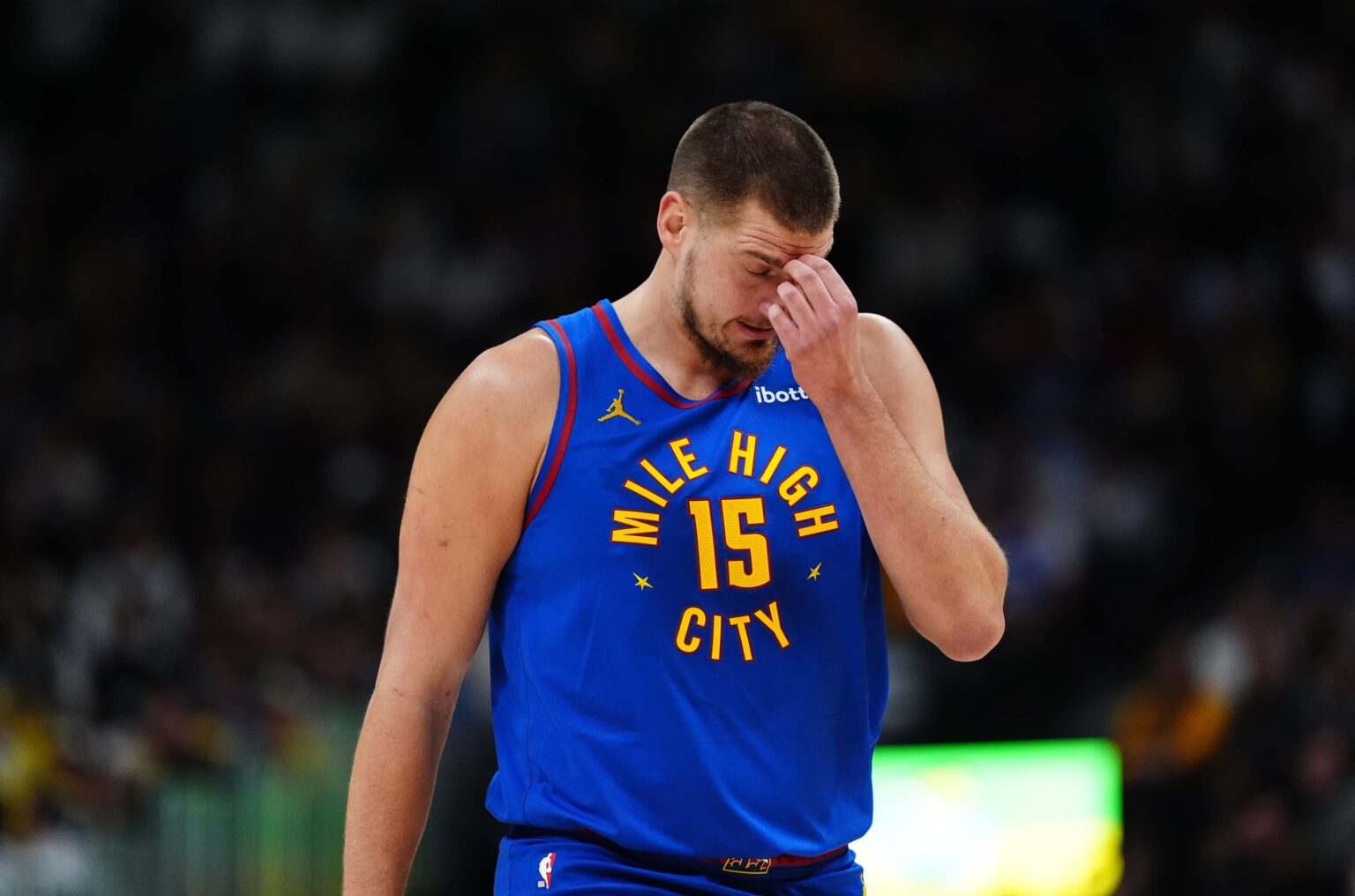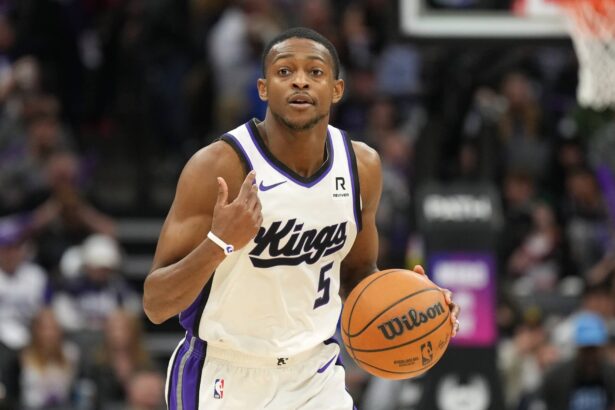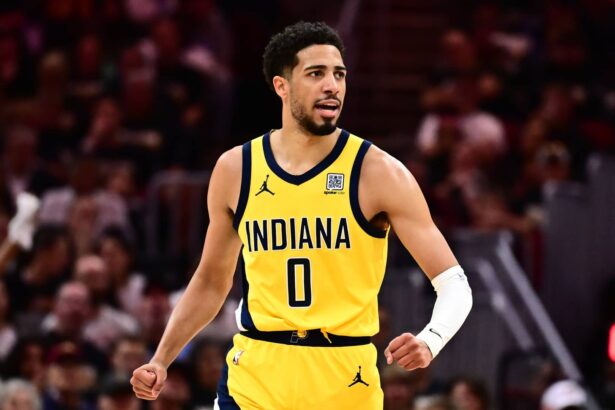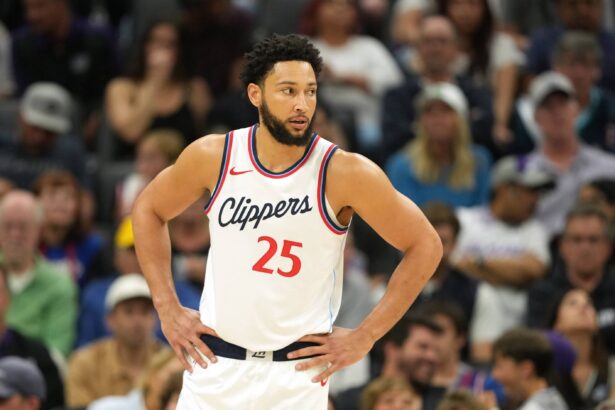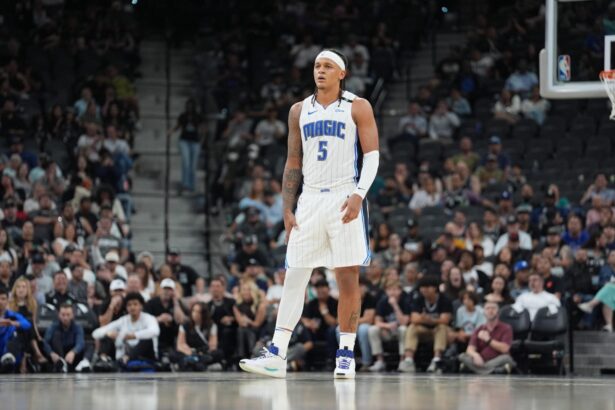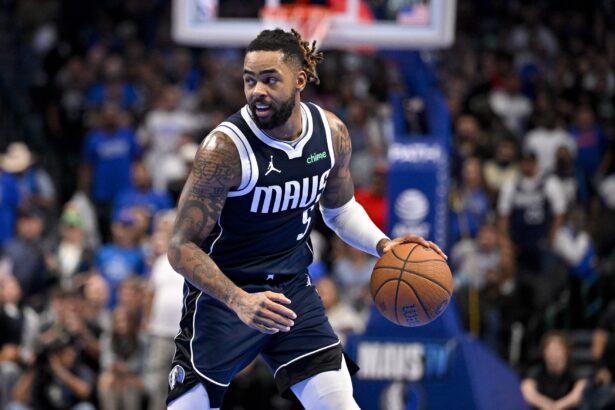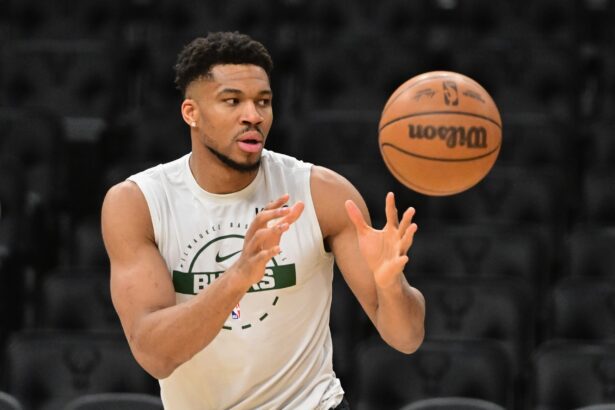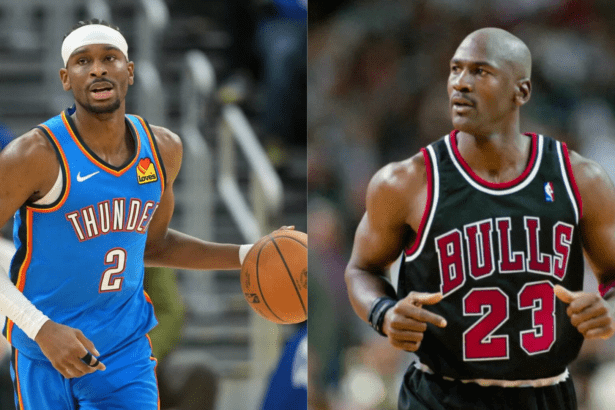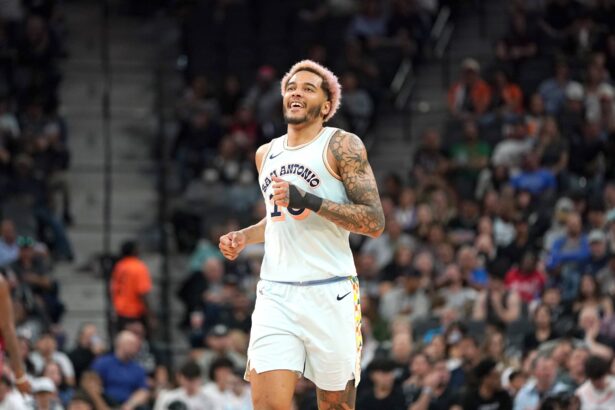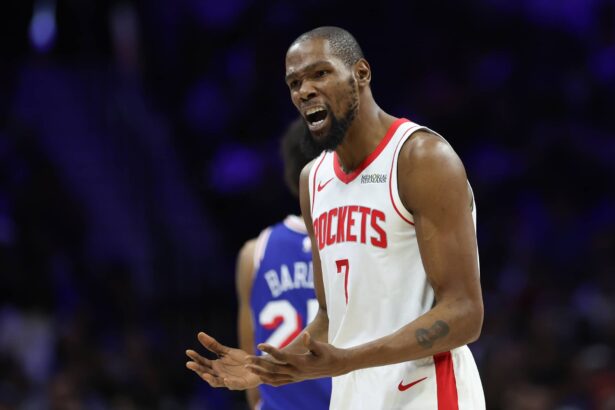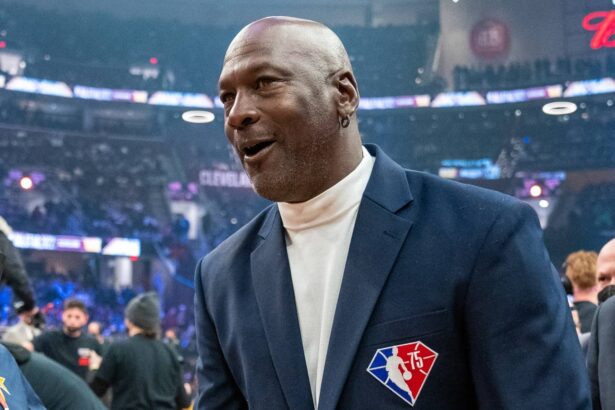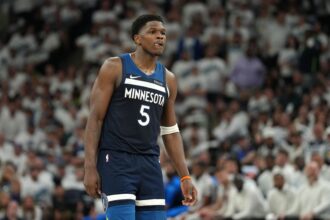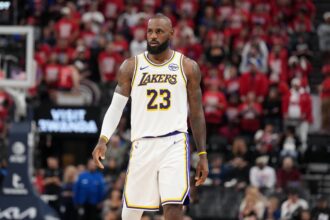We’re only a few games in, but Denver Nuggets fans are already feeling uneasy. With a 4-3 record, they’re sitting at 9th in the Western Conference—a far cry from the powerhouse we’ve seen in recent years. Losing Kentavious Caldwell-Pope and Reggie Jackson over the offseason has left some big gaps, and while they brought in Russell Westbrook to shake things up, the pieces haven’t quite fallen into place.
Adding to the challenges, injuries are hitting hard. Aaron Gordon went down in their last game, thinning out an already struggling lineup. Nikola Jokic remains the rock, putting up big numbers and leading the charge, but the team’s chemistry just isn’t there. With a shaky defense, an inconsistent bench, and adjustments still underway, this might be the last dance for this Nuggets team if they don’t recover. After all, here’s a breakdown of the five biggest issues holding the Nuggets back from looking like the contenders they’re supposed to be.
1. Outside Shooting
The Nuggets’ outside shooting woes are glaring, especially for a team that’s supposed to have championship potential. Right now, they sit at 24th in made three-pointers per game and a bleak 29th in attempts—far below what’s expected for an offense that should be dynamic and adaptable. This lack of consistent outside threat makes their offense look stagnant and easier to predict.
Key players just aren’t hitting from beyond the arc. Michael Porter Jr., typically one of their more reliable shooters, is only managing 36.0% on his three-point attempts—solid but not at the level the Nuggets need from him to spread the floor effectively. Meanwhile, Jamal Murray, who’s known for his hot shooting streaks, has started the season at a low 30.4% from deep, making him less of a threat than usual.
Then there’s Russell Westbrook, who joined the roster this offseason but has always been inconsistent with outside shots. Right now, he’s hitting only 20.8% from three, which brings little value to their spacing. Peyton Watson, another rotation player getting almost 20 minutes a game, has been struggling even more, hitting just 16.7% of his attempts. With these key players missing the mark, Denver’s offense loses a lot of the dynamism it needs to keep defenders guessing.
If the Nuggets can’t find a way to lift these shooting percentages, they’ll continue to see defenses collapse on their stars, particularly on Nikola Jokic. Without more reliable spacing from deep, the Nuggets’ offense becomes much easier to slow down, a major hurdle for a team with championship ambitions.
2. Bench Production
The Nuggets’ bench production has been a weak spot, and it’s putting extra strain on the starting lineup. Right now, Denver’s bench is only putting up 26.3 points per game, the fifth-worst mark in the league. For a team with championship ambitions, that’s a serious issue. Reliable bench scoring helps keep momentum and gives starters more flexibility, but Denver’s bench has been struggling to find its rhythm.
Russell Westbrook, the most active bench player in terms of minutes, is averaging just 10 points per game on a rough 28.8% shooting. These numbers don’t just indicate a slump; they suggest that Westbrook isn’t providing the scoring punch or efficiency the Nuggets need off the bench. Despite his experience and energy, his shooting inefficiency is preventing him from being a real offensive threat, limiting the team’s options when their starters rest.
Julian Strawther is one of the few bright spots, bringing 9.4 points per game with a bit more efficiency. He’s shown flashes of potential and has occasionally stepped up when other bench players struggled. Peyton Watson is also in the mix, though his 6.0 points per game aren’t enough to significantly impact Denver’s scoring output when the starters sit.
With a bench that isn’t producing, the starters face added pressure to sustain leads or play catch-up, game after game. To be competitive in a tough Western Conference, the Nuggets will need more reliable, consistent contributions from their second unit. Right now, the lack of depth scoring is one of the biggest factors holding them back from being the powerhouse team their fans expect.
3. Defensive Holes
Defensively, the Nuggets have some serious issues, and it’s a big reason they’re struggling to assert themselves as a top team in the West. Currently, Denver ranks among the bottom of the league, allowing 116.5 points per game—placing them as the ninth-worst in the NBA. This high points allowed average points to underlying issues with their defensive schemes, rotations, and communication, especially against high-scoring teams.
One of the biggest weaknesses has been their perimeter defense. Denver allows opponents to hit 13.4 three-pointers per game, which is the 13th-worst mark across the league. The three-point era has made it crucial for teams to defend the perimeter effectively, and the Nuggets are struggling to do that, allowing too many open looks beyond the arc. This inability to close out on shooters effectively is opening up the floor for their opponents, making it easier to get into a scoring rhythm.
For the Nuggets, who’ve relied heavily on their offense in recent years, this defensive slump is putting extra pressure on their star players to outscore opponents in high-scoring games. While Jokic continues to put up impressive numbers, it’s clear that if the team wants to rise in the standings, their defense needs a serious overhaul. Improving defensive cohesion and consistency will be crucial if they aim to be serious contenders in a very competitive Western Conference.
4. Individual Shot Making
One of the biggest concerns for the Nuggets this season has been their lack of individual shot creation. Jamal Murray, the team’s primary shot creator outside of Nikola Jokic, is averaging a modest 16 points per game while shooting below 40% from the field. For a team struggling offensively, especially when Jokic isn’t carrying the load, this lack of efficient scoring and shot creation is a glaring issue. Without Murray at his best, the Nuggets simply don’t have anyone else who can consistently create their own shot and relieve pressure on Jokic.
Michael Porter Jr., while talented, isn’t stepping up as the isolation scorer or playmaker the team could use. He’s averaging 16.9 points per game on 46.5% shooting, which looks solid at first glance, but his production largely relies on assisted shots. MPJ isn’t a natural shot creator, and his impact on offense often depends on catch-and-shoot opportunities or Jokic setting him up. When defenses lock in on Jokic and cut off his passing lanes, the Nuggets lack another reliable scoring option to keep the offense flowing.
Russell Westbrook, who joined Denver to add energy off the bench, is only averaging 10 points per game himself. But even more concerning is his impact on the team’s overall performance. When Westbrook is on the floor, the Nuggets have a plus/minus of -42, highlighting the team’s struggles to find a rhythm with him in the lineup. His inefficiency and inconsistent fit with Denver’s system make it hard for the team to generate offense during crucial stretches.
In a season where the offense outside of Jokic has been so inconsistent, the Nuggets desperately need another dependable shot creator. Right now, the lack of that additional spark is causing the offense to sputter in crucial moments, and it’s leaving them far from the contending status they’re striving for.
5. Jokicless Minutes
Nikola Jokic is once again in MVP form, putting up monster numbers: 29.6 points, 12.6 rebounds, and 10.3 assists per game. He’s the heart and soul of the Nuggets’ offense, orchestrating nearly every play and keeping them competitive. But the team’s dependency on Jokic is glaringly obvious when he’s off the floor. During the 10.3 minutes per game that Jokic spends on the bench, Denver’s offense falls apart, posting a brutal 89 offensive rating and a staggering -18.6 net rating. Simply put, they struggle to score and get stops without him.
This heavy reliance on Jokic wouldn’t be so detrimental if Jamal Murray and Michael Porter Jr. were playing at a higher level. Unfortunately, with Murray’s shooting below 40% and MPJ not stepping up as a shot creator, the team is left scrambling for answers when Jokic isn’t on the court. The lack of consistent production from these secondary stars leaves Denver painfully vulnerable during Jokicless minutes, where they’re often forced into stagnant possessions and poor shot selection.
It’s a harsh reality for a team with championship aspirations. With Jokic leading the charge, Denver can look like a contender, but when he sits, their weaknesses are fully exposed. If the Nuggets can’t find a way to generate reliable offense without Jokic on the floor, they’ll continue to struggle against deeper, more balanced teams in the West. This dependency on Jokic isn’t just unsustainable—it’s putting immense pressure on their MVP to carry the load every single game.

